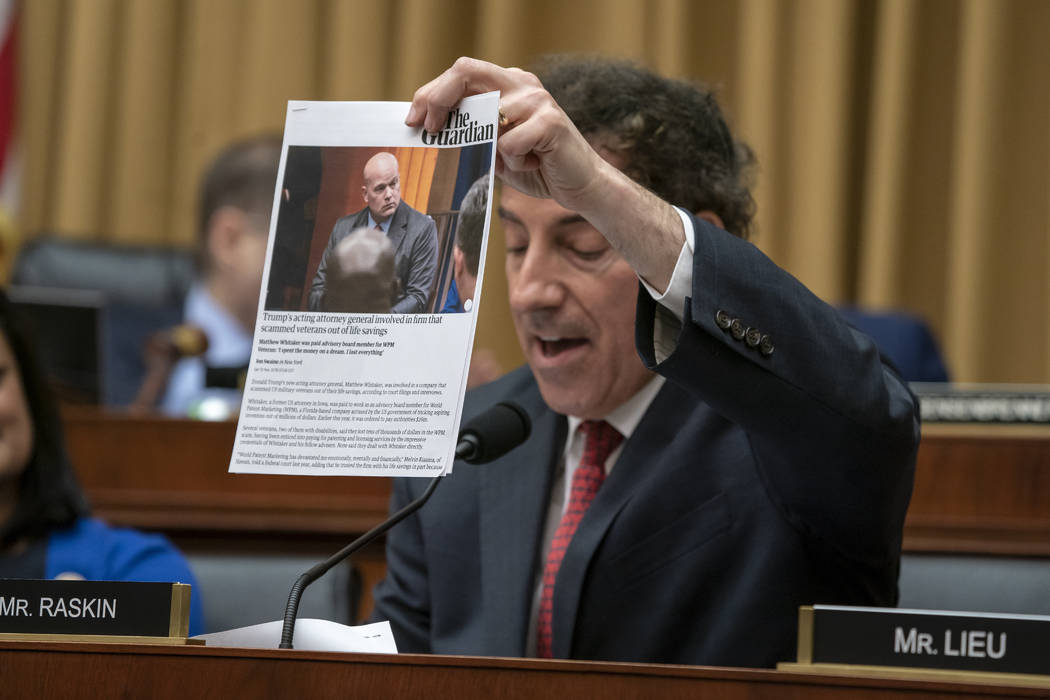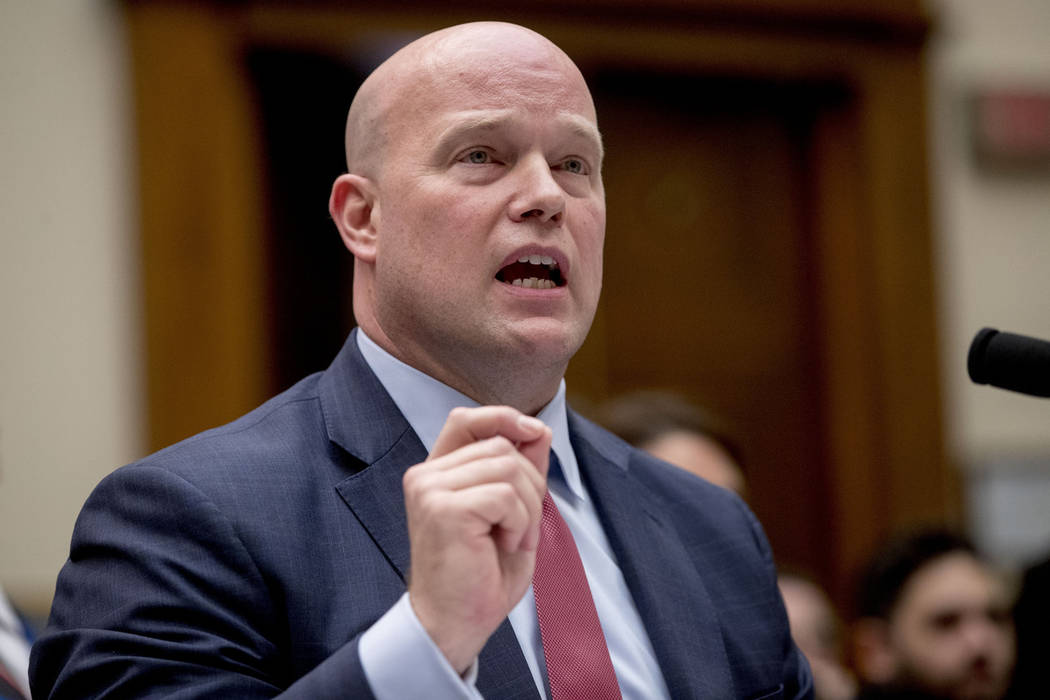Wire Act reinterpretation was not ‘corrupted’, Matthew Whitaker says
Acting Attorney General Matthew Whitaker on Friday staunchly denied influencing the Justice Department’s recent reinterpretation of the federal Wire Act — a move that could further restrict internet gambling.
Testifying before the House Judiciary Committee in Washington, D.C., Whitaker said he and former Attorney General Jeff Sessions had recused themselves from any involvement regarding the Wire Act review process.
Whitaker also responded to questioning by Rep. Jamie Raskin, D-Md., who expressed concern the decision-making process had been “corrupted” by Las Vegas Sands Corp. Chairman and CEO Sheldon Adelson, whose company has contributed to a coalition that has lobbied lawmakers and the Justice Department about the law.
“Your inferences on how that process was corrupted or corrupt is absolutely wrong,” Whitaker said. “And the premise of your question I reject.”
Whitaker’s testimony came after two state attorneys general, New Jersey’s Gurbir Grewal and Pennsylvania’s Josh Shapiro, also challenged the Justice Department’s reinterpretation of the law.
In a three-page letter to Whitaker and other Justice Department officials, Grewal and Shapiro said the new interpretation of the Wire Act threatens jobs and state tax revenues generated by lottery sales and other internet gambling activity.
AGs’ letter
“This about-face is wrong and raises significant concerns in our states,” the Feb. 5 letter from Grewal and Shapiro said. “We ask that DOJ withdraw its opinion altogether or assure us that DOJ will not bring any enforcement actions against companies and individuals engaged in online gaming in our states — where it is appropriate under state law.”
Grewal also filed a Freedom of Information Act request on behalf of New Jersey seeking information on any communications involving Adelson, his lobbyists, the White House, and the Justice Department regarding the relevant federal law and online gaming.
Grewal’s office did not return a request for comment.
Adelson, a longtime supporter of many political campaigns and causes, has opposed internet gambling.
Las Vegas Sands spokesman Ron Reese declined to comment Wednesday, but the company confirmed that Las Vegas Sands and not Adelson’s personal funds have helped finance the Coalition to Stop Internet Gambling.
The coalition believes internet gambling targets the vulnerable and is not secure. However, gaming regulators have used technology to prevent play by minors and to determine the location of a player as well as to enforce laws against money laundering.
The coalition lists 67 supporters on its website, including Reno’s Bonanza Casino and Monarch Casino & Resorts, but not Las Vegas Sands.
Asked why Adelson or Las Vegas Sands aren’t listed among supporters, a coalition spokesperson told the Review-Journal in a statement: “Our coalition includes a broad array of industry, community and family groups and it’s our policy to respect the privacy of each.”
The coalition says internet gambling crosses the line of responsible gaming by targeting the young, the poor and the elderly where they live. Casino companies also have programs to prevent problem gambling.
90 days to comply
The 23-page Department of Justice opinion dated Nov. 2 reversed some of the stances the department made in 2011 under the Obama administration. In a follow-up memorandum, the department indicated it would give states 90 days to come into compliance with the new rules.
In 2011, the Justice Department interpreted the law to ban sports betting, but enabled interstate poker play and lottery sales. The new interpretation bans all forms of interstate betting, including sports wagering, and also includes other gambling-related interstate communications.
The reinterpretation could ban interstate poker games currently allowed by Nevada, New Jersey and Delaware as well as affect multistate lottery ticket sales.
Court challenges
When the new opinion was issued, gaming industry analysts predicted that it would eventually be challenged in court. The letter from the two attorneys general appears to be the first sign that could happen.
“This letter from the attorneys general of New Jersey and Pennsylvania is a clear indication that the recent DOJ opinion on the federal Wire Act will not go unchallenged,” UNLV law professor Anthony Cabot, an expert on internet gambling, said in an email.
It’s unclear whether the Nevada attorney general’s office would become a part of any legal fight involving the Wire Act. An office representative said the office did not have a comment.
The Review-Journal is owned by the family of Las Vegas Sands Corp. Chairman and CEO Sheldon Adelson.
Contact Richard N. Velotta at rvelotta@reviewjournal.com or 702-477-3893. Follow @RickVelotta on Twitter.
























